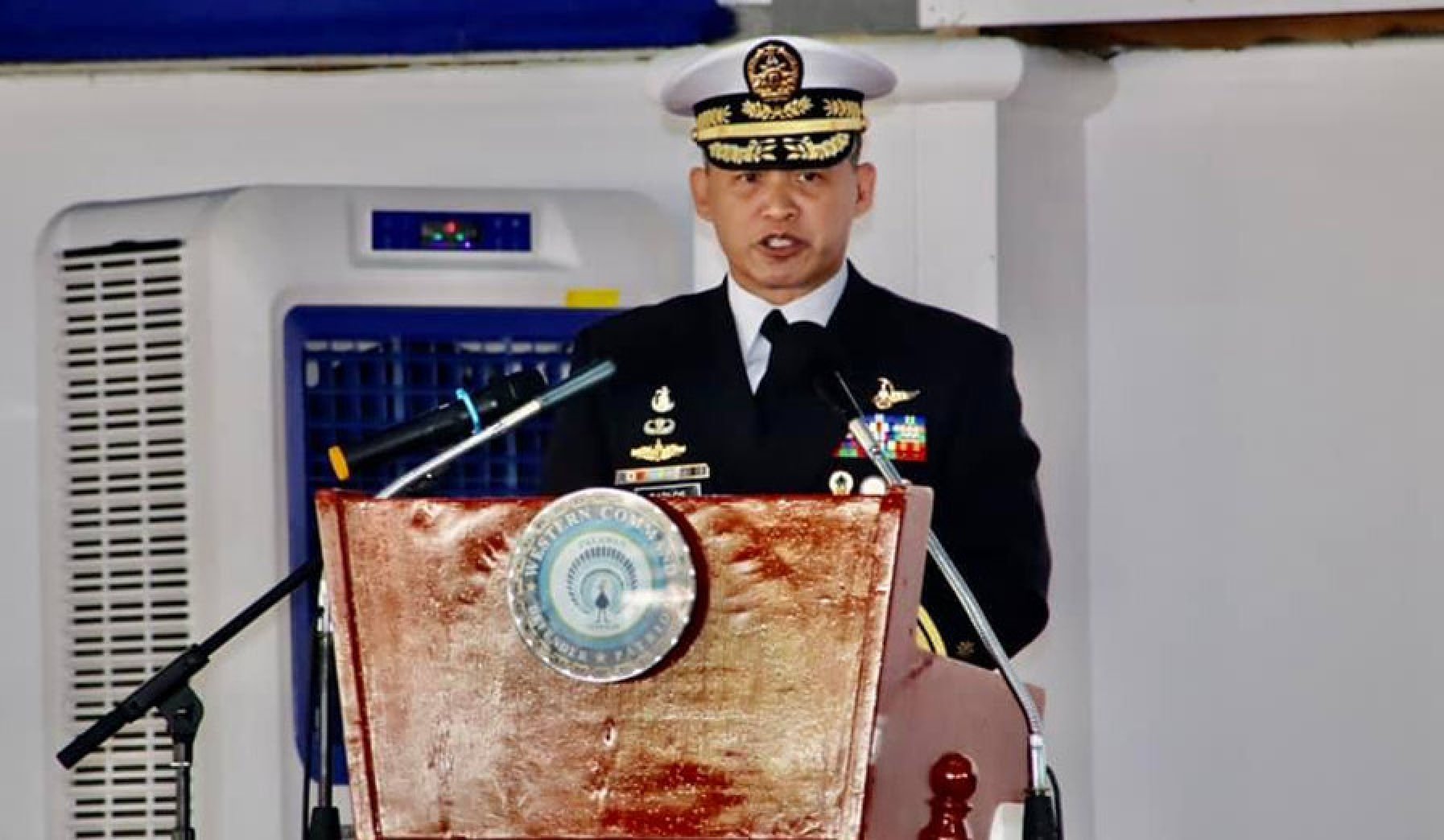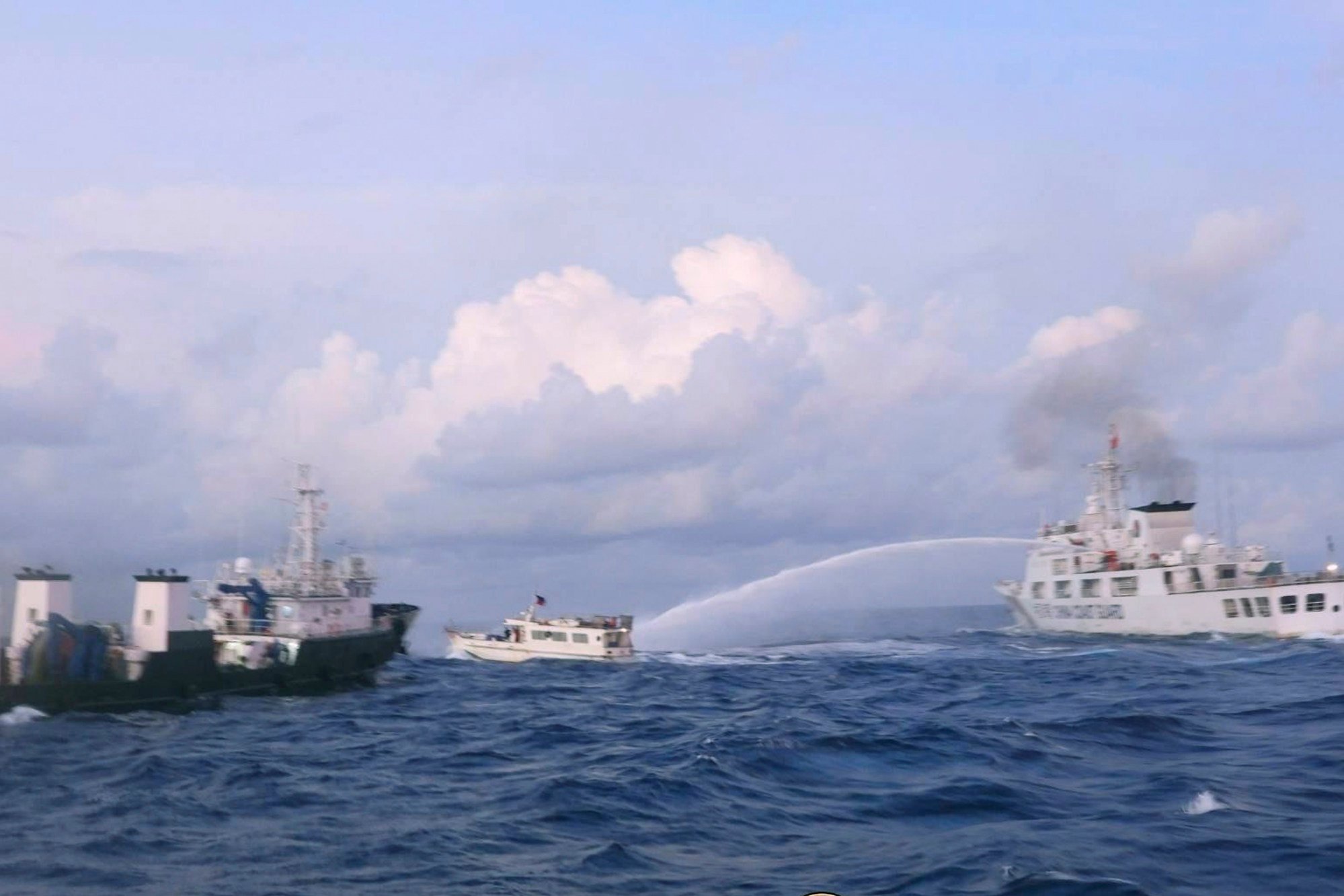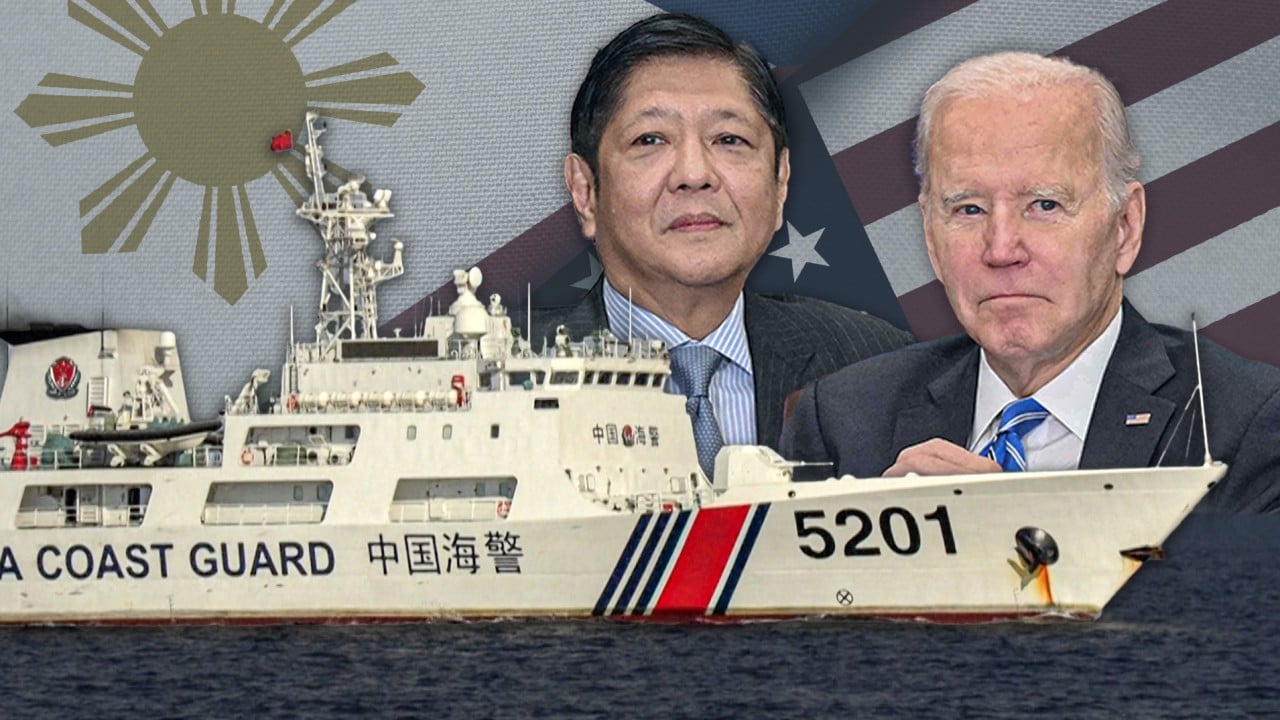Carlos is on an indefinite leave of absence from service, the military confirmed on Tuesday.

Local paper Palawan News, located in the same region where Wescom is based, reported that Carlos met Chinese envoy Huang Xilian on July 21, 2022 and stressed the need for a “diplomatic approach” in resolving competing claims in the West Philippine Sea – Manila’s term for the section of the South China Sea that defines its maritime territory and includes its exclusive economic zone.
According to Palawan News, Carlos paid a courtesy call to Huang at the Chinese embassy in Makati City as he had attended the Chinese navy’s Command College in Nanjing.
Carlos apparently kept in touch with the embassy. On May 6, Lian Jian, spokesman of China’s Ministry of Foreign Affairs, said the “new model” was reached “early this year … after multiple rounds of discussions through the diplomatic channel and AFP Wescom”.
The key points of the deal included a “1+1” model for both sides, meaning Manila would deploy a coastguard vessel and a resupply boat to the shoal, while China would launch one coastguard ship and a fishing boat.
Political analysts in the Philippines say China might be using Carlos as a “pawn” given his position as head of the Western Command.
“It’s part of the cognitive warfare of the [Chinese] military,” said Chester Cabalza, founding president of Manila-based think tank the International Development and Security Cooperation.
This is not Carlos’ first brush with China.
Last December, Carlos and military chief Romeo Brawner Jnr, his 1989 batch mate at the Philippine Military Academy, were on board a vessel on a resupply mission to the outpost on the Second Thomas Shoal. During the trip, the vessel collided with a Chinese coastguard ship that fired high pressure water cannons at them.
On another resupply mission in February, Carlos sustained minor head injuries after the Chinese coastguard fired water cannons.

In 2019, Carlos received the Outstanding Soldier of the Year award from the Metrobank Foundation.
One of the award’s judges, Rock Ed Philippines founder Therese Gang Badoy-Capati, told This Week in Asia she voted for Carlos because he “really stood out even back then”. Carlos had studied at the Chinese naval college and the US Naval Academy.
Raymond Powell, head of the Stanford Gordian Knot Center for National Security Innovation, said he met Carlos on July 14 at the Western Command headquarters in Palawan.
“We discussed how to leverage emerging technologies to help improve maritime domain awareness and illuminate grey-zone activities in the West Philippine Sea,” Powell wrote on the centre’s website after the meeting.
“He was deeply concerned about China’s aggressive activity in the West Philippine Sea and how the Philippines could effectively counter it,” he said of Carlos.
As for the allegations against Carlos, Powell said, “I have always found Vice-Admiral Carlos to be very smart, professional and highly committed to West Philippine Sea security.”
With additional reporting by Reuters


